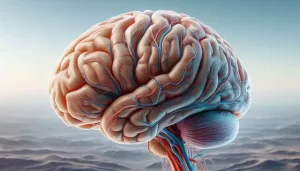COVID-19 Vaccines: What is a DNA vaccine?
COVID-19 Vaccines: What is a DNA vaccine?
COVID-19 Vaccines: What is a DNA vaccine? DNA vaccines are often referred to as third-generation vaccines, which use engineered DNA to induce immune responses against bacteria, parasites, viruses, and potential cancers in the host.

Traditional vaccine
The vaccines currently available to the global population include measles, mumps, rubella, seasonal influenza virus, tetanus, polio, hepatitis B, cervical cancer, diphtheria, whooping cough, and certain vaccines for diseases that are endemic in certain regions.
Many of these vaccines provide immunity by inducing an antigen-specific adaptive immune response in the host.
Although conventional vaccines are essential to prevent the spread of many highly infectious diseases, the production of these vaccines often requires researchers to deal with live pathogens. The treatment of these pathogens will not only bring safety hazards to the personnel who develop vaccines, but the risk of contamination by these pathogens is also worthy of attention.
The challenges associated with conventional vaccine development have led to research on several alternative vaccine methods that can be used for infectious and non-infectious diseases.
An alternative vaccine that has received much attention is a DNA-based vaccine that is considered more stable, more economical, and easier to operate than traditional vaccines.
How does DNA vaccine protect us?
Like any other type of vaccine, DNA vaccines induce an adaptive immune response. The basic working principle behind any DNA vaccine involves the use of a DNA plasmid, which encodes a protein that originates from the pathogen that the vaccine is targeted to.
Plasmid DNA (pDNA) is cheap, stable and relatively safe, so using a non-viral platform is considered an excellent choice for gene delivery. Some different viral vectors that have been used to source pDNA include cancer retrovirus, lentivirus, adenovirus, adeno-associated virus, and herpes simplex type 1 virus.
When DNA vaccines are injected intramuscular injection (IM), pDNA will target muscle cells. DNA vaccines can also be administered by subcutaneous or intradermal injection, both of which target keratinocytes. Regardless of the injection site, pDNA will transfect cardiomyocytes or keratinocytes, and then they will experience a type of programmed cell death called programmed cell death.
Cells undergoing apoptosis release small membrane-bound fragments, also called apoptotic bodies, which trigger immature dendritic cells (immature dendritic cells, iDC) to phagocytize cell fragments. Then, the activity of iDC can be activated The production of foreign antigen, which is only presented by Major Histocompatibility Complex II (MHCII).
The antigen presented to MHCII activates helper CD4+ T cells, which help B cells to activate and ultimately allow the generation of a humoral immune response. This humoral immune response is needed to activate the production of CD8+ T cells.
In addition to acting on muscle cells or keratinocytes, any DNA vaccine administration route can transfect Antigen-presenting cells (APC) located near the injection site. This direct transfection approach leads to the expression of endogenous transgenes and the parallel expression of antigens through MHC I and MHC II, thereby generating CD8+ and CD4+ T cells.
What DNA vaccines are currently being developed?
Currently, no DNA vaccine is approved for widespread use in human vaccines. However, the U.S. Food and Drug Administration (FDA) and the United States Department of Agriculture (USDA) have approved several DNA-based vaccines for veterinary use, including West Nile virus vaccines for horses and melanoma vaccines for dogs.
Although DNA-based vaccines have not yet been approved for use in the public, there are some ongoing clinical trials of DNA vaccines. According to the US National Library of Medicine, more than 160 different DNA vaccines are currently being tested in clinical trials in the United States. It is estimated that 62% of these trials are used for cancer vaccines and 33% are used for vaccines against human immunodeficiency virus (HIV).
One of the first clinical trials of DNA vaccines investigated the potential therapeutic and preventive effects of DNA vaccines against HIV. Although a certain degree of immunogenicity was detected in this test, no obvious immune response was found. The high variability of HIV allows the virus to invade the host immune system through several different mechanisms.
As a result, scientists seeking to develop DNA-based anti-HIV vaccines have discovered that several different initiation strategies, enhancers, and changes to the vaccination schedule must be carefully evaluated in order to design the best anti-HIV DNA vaccine.
Future direction
Although many DNA-based vaccines are currently being tested worldwide, there are still some challenges that make it difficult to translate this vaccine approach into clinical applications. One of the biggest challenges associated with DNA vaccines is their low immunogenicity in large animals and humans.
Researchers believe that higher amounts of DNA in the range of 5 to 20 mg will need to be injected into ordinary people to improve the immunogenicity of DNA-based vaccines. Another challenge for DNA-based vaccines involves the optimization of transfection, which can be achieved by integrating several parameters, such as the optimization of mixed viral and eukaryotic promoters or antigen codons.
In summary, an ideal DNA vaccine should avoid extracellular degradation and successfully enter the target cell nucleus to induce a long-term immune response.



